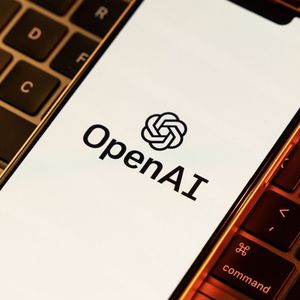In the fast-paced world of technology, where advancements like blockchain and artificial intelligence are reshaping industries daily, foundational skills are becoming paramount. A significant development underscoring this came recently when over 250 prominent business leaders signed an open letter advocating for widespread AI education and computer science integration in K-12 schools. This move highlights a growing consensus that preparing the next generation for a digitally driven future is not just beneficial, but essential for national competitiveness and individual opportunity. Why is AI Education Crucial for the Future? The letter, published in The New York Times, didn’t mince words. It argued that AI and computer science should be considered fundamental components of primary and secondary education. The core message? The United States risks falling behind other nations that have already made these subjects mandatory. Countries like Brazil, China, South Korea, and Singapore are cited as examples of nations proactively integrating these skills into their national curricula. The goal is clear: equip students to be creators and innovators in the age of AI, not merely passive consumers of technology. The Computer Science K-12 Push: Who is Involved? The list of signatories on the open letter reads like a who’s who of the tech and business world. It includes high-profile figures such as Microsoft CEO Satya Nadella, Etsy CEO Josh Silverman, and Uber CEO Dara Khosrowshahi, among more than 250 others. Their collective voice amplifies the urgency of the call. These leaders, whose companies are at the forefront of technological change, see firsthand the skills gap emerging and the necessity of building a robust talent pipeline starting from the earliest stages of education. Their support lends significant weight to the movement to reform K-12 curricula. Preparing the Future Workforce : What’s the Impact? Investing in early computer science and AI education is fundamentally about preparing the future workforce . As automation and AI become more prevalent across all sectors, jobs will increasingly require digital literacy, critical thinking, and problem-solving skills rooted in computational thinking. Early exposure helps demystify these complex fields, making them accessible to a broader range of students and encouraging diversity in tech. This isn’t just about creating programmers; it’s about fostering a generation that understands how technology works, can adapt to new tools, and can apply computational approaches to solve real-world problems, including those in emerging fields like cryptocurrency and decentralized finance. Tech CEOs Speak Out: A Call to Action The open letter from the Tech CEOs serves as a direct appeal to policymakers and educators. It arrives at a time when the U.S. government is actively discussing and shaping its national AI strategy. The letter aligns with recent executive orders aimed at promoting AI integration across educational levels and workplaces through collaborations between industry and academia. However, the CEOs’ letter also implicitly addresses concerns about potential cuts to federal programs that support fundamental AI research and education initiatives, emphasizing the need for sustained investment. Skills for the Digital Economy : Bridging the Gap The modern Digital Economy demands a new set of skills. Understanding algorithms, data, and basic programming is becoming as crucial as traditional literacy and numeracy. For individuals interested in or working within the cryptocurrency space, a strong foundation in computer science and AI is particularly valuable. It provides the technical understanding needed to grasp blockchain technology, smart contracts, decentralized applications, and the complex systems that underpin the crypto market. By prioritizing Computer Science K-12 , the U.S. can better equip its citizens to not only participate in but also lead the innovations driving the global digital landscape. While implementing nationwide curriculum changes presents challenges, including teacher training, resource allocation, and ensuring equitable access across all schools, the potential rewards are substantial. A workforce proficient in AI and computer science can drive innovation, boost economic growth, and ensure the nation remains competitive on the global stage. In conclusion, the unified call from over 250 CEOs underscores the critical need to embed AI and computer science into the core of K-12 education. This initiative is seen as vital for equipping the future workforce with the necessary skills to thrive in the increasingly complex and technology-driven Digital Economy , ensuring the U.S. remains a leader in innovation. To learn more about the latest AI trends, explore our article on key developments shaping AI features.


















